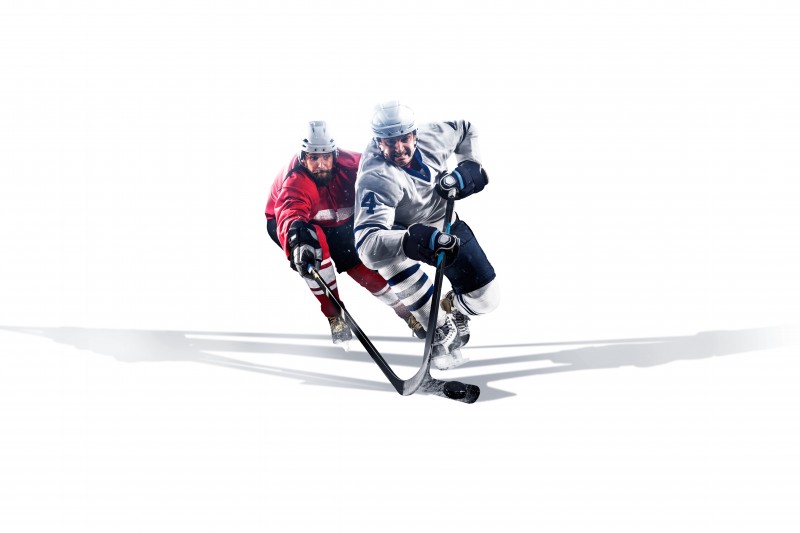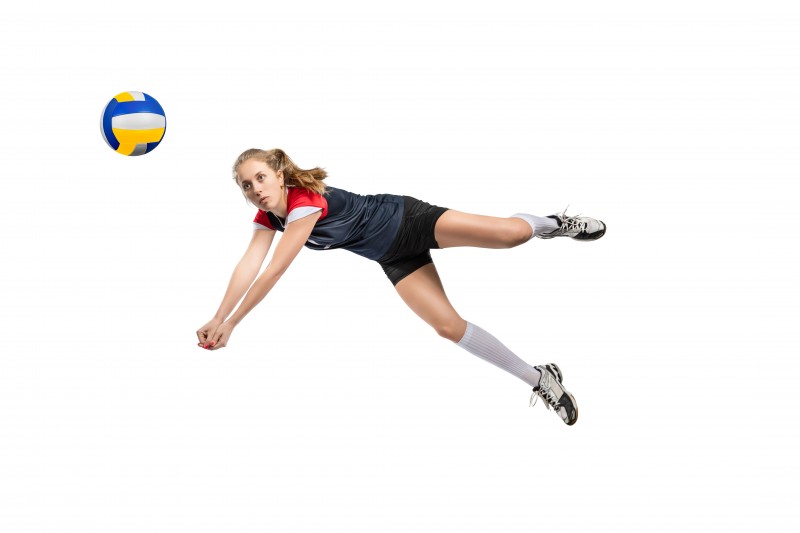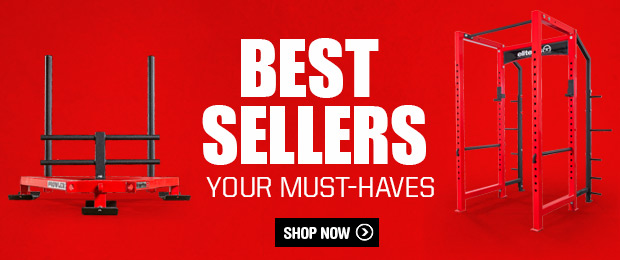
I don’t work with strength coaches. They are all about strength. They don’t understand our sport.
Over 25 years of speaking with sports coaches, I have heard the above statement — or variations of it — more than once.
For strength coaches who want to work with athletes, it is a problem if the sports coach does not trust that they can be of service.
RECENT: 5-4-3-2-1 Program for Size and Strength
In this article, I will share a perspective on why some sports coaches don't trust strength coaches and how to rebuild that trust.
The suggested strategy to build trust from the sports coach involves a particular approach to the strength and conditioning process. A natural consequence of this approach defines the scope of practice of strength and conditioning. Consequently, this article also describes such a scope of practice.
Why Some Sports Coaches Don't Trust Strength Coaches
Sports coaches don't trust strength coaches because they fail to convince the sports coach that they have the same objective —to help the athlete become better at their sport.
I have experienced coaching situations that illustrate what happens when sports coaches focus on short-term wins at the possible expenses of an athlete’s health and long-term development. For this article, let us assume that the sports coach has a focus on long-term athletic development.
Strength Coaches Naturally Support the Goal of Long-Term Athletic Development
Strength coaches understand that athletes, ultimately, prefer to practice and compete in their sport over weightlifting; otherwise, they would have become lifters.

Strength coaches understand that athletes, ultimately, want to win, not get stronger. Do you know any athlete who would enjoy sitting in the locker room talking about their recent squat PR after they’ve lost a competition, match, or game?
Strength coaches can, therefore, support the first principle of physical training:
The optimal development of bio-motor abilities (physical qualities) to support the ability to practice and compete (in the specific sport(s)) — with maximal quality — at the desired level at a given age.
| A first principle is a basic, foundational, self-evident proposition or assumption that cannot be deduced from any other proposition or assumption. (1) Elon Musk is a technology entrepreneur, investor, and engineer (2) and has spoken about first principles: “You boil things down to the most fundamental truth and reason up from there.” (3) To the knowledge of this author, the attempt to define first principles in the realm of strength and conditioning is a new endeavor. The exercise of attempting to distill the most fundamental truth about any area of training is a great exercise in gaining clarity and understanding. |
However, one core belief about strength and conditioning — held by some strength coaches — that makes sports coaches doubt their usefulness (see the first paragraph of this article) is:
You can’t train sport specifically. Athletes just need to get stronger.
Recently, I read a Facebook post by a very famous, respected, and successful strength coach. The post included these two paragraphs.
Do you guys do "sports–specific training?" It drives me crazy that I have to give the same response over and over. I've taken to saying "I'd love to lie to you but, no."
I drilled home the point that 80% of what these athletes have done as my clients is pretty much the same. Yes, there are differences but, the differences were based much more on the athlete’s health and training history than on the athlete’s sport.
Frequently, when I see sport–specific training mentioned — in a context similar to the above — it is accompanied by a sarcastic comment. An example: Yes, let’s go out and hit balls with a 10kg tennis racket.
The core belief mentioned above in the Facebook post and in the sarcastic comment stems from a fundamental misunderstanding of the concept of sport-specific training.
There are three steps to understand not only sport–specific strength and conditioning, but also the core of individualized training programs:
1. The ultimate goal of strength and conditioning for an athlete is to improve the athlete’s ability to practice and compete (see above).
Because of that...
2. Any exercise included in the program must, in the short or the long run, improve the athlete's ability to practice and compete. If you do not meet this requirement, how do you explain the reason for the exercise being in the program?
Because of that...
3. Any exercise included in the program — ever — must be specific to the needs of the athlete (and the sport). If you do not meet this requirement, how do you explain the reason for the exercise being in the program?
Thus, the true meaning of sport–specific training is not training the sport with more weight.
RELATED: The Specific Demands and Application of Conditioning for Sports
The true meaning of sport–specific training is training with benefits that are specific to the needs of the sport (and the individual athlete).
When strength coaches can communicate to the sports coach that their only focus is to help athletes improve their ability to practice and compete, the sports coach then tends to trust the strength coach.
To have a complete focus on improving the athlete’s ability to practice and compete — possibly at the expense of specific weight room numbers — may require a change in a strength coach’s skill set, attitude, and definition of success.
| Applying the (related) principles of dynamic correspondence, biomechanical and bioenergetic specificity are keys to ensure that the strength and conditioning improve the athletes’ ability to practice and compete. (4,5,6) |
How a Scope of Practice Follows the First Principle of Strength and Conditioning
As mentioned above, the definition of the First Principle of Strength and Conditioning is:
The optimal development of bio-motor abilities (physical qualities) to support the ability to practice and compete (in the specific sport(s)) — with maximal quality — at the desired level at a given age.
Following the above statement is a suggested scope of practice for strength and conditioning coaches.
Improve any supplementary physical quality for any athlete* to optimal levels through an exercise in the absence of musculoskeletal pain
*A distinction can be made here between athletes and coaches at different levels. For example, regional, national, international, and Olympic.
The following paragraphs clarify elements of the scope of practice:
The word supplementary indicates the difference between strength coaches and sports coaches in sports that are dominated by one primary physical ability (strength, speed, power, and endurance).
The sprint coach, Olympic lifting coach, powerlifting coach, etc., must help athletes improve the primary ability of the sport to maximal levels.

In contrast, the strength coach works with the qualities that are supplementary to the final performance of the sport. For example, speed for a football player. The supplementary qualities most often must be developed to optimal levels (the level needed to practice and compete at the desired level) rather than maximal levels.
Through the use of a thorough needs analysis, a strength coach can work with any athlete and does not need to limit themselves to specific sports.
- The absence of musculoskeletal pain marks the distinction between strength coaches and therapists; and the emphasis on exercise marks the difference between strength and conditioning and therapy, even though a therapy treatment can include exercise.
- Exercise also marks the distinction between the strength coach and the nutritionist.
The scope of practice for strength coaches includes delivering exercise programs that support changes in body composition in conjunction with an adequate meal plan provided by a nutritionist.
LISTEN: Beyond Sets and Reps Podcast #3 with Dr. Bryan Mann
The scope of practice of strength coaches includes coaching the mental components of the strength and conditioning process that include goal setting, motivation, and focus. It excludes psychological elements related to sports performance or any personal issues that go beyond the strength and conditioning process.
The suggested scope of practice clarifies the role of strength coaches in relation to athletic performance as well as other professionals involved in athletic development.
Summary
This article argued that some sports coaches don't trust strength coaches because they fail to convince the sports coaches that they have the same goal. Also discussed was that a solution to gain the trust from the sports coach is to assume a total focus on the athlete's ability to practice and compete. Last, it presented a possible scope of practice derived from the First Principle of Strength and Conditioning.
References
- https://en.wikipedia.org/wiki/First_principle
- https://www.google.com/search?q=elon+musk&oq=elon+musk&aqs=chrome..69i57j0l5.7294j0j4&sourceid=chrome&ie=UTF-8
- https://www.youtube.com/watch?v=bLv9MGsUt6g
- Stone MH, Stone M, Sands WA. Training Principles. Principles And Practice of Resistance Training. Modes of Resistance Training. Chapter 12, p 243-253. Human Kinetics. 2007.
- Siff M. Dynamic Correspondence as a Means of Strength Training. Supertraining 6th Ed. The Means of Special Strength Training. Chapter 4, p 240-246. Supertraining Institute. Denver, USA. 2004
- Jensen K. Principles of Exercise Selection that are based on the Needs Analysis. Beyond “Functional” Training. Periodization of Exercise Selection. Chapter 3, page 30-35. www.yestostrength.com. 2015
Images courtesy of Ievgen Onyshchenko © 123rf.com
Karsten Jensen, MSc Exercise Physiology, has helped world-class and Olympic athletes from 26 different sports for over 20 years. Many of his athletes have won Olympic medals, European Championships, World Championships, and ATP Tournaments. Karsten is the first strength coach to create a complete system of periodization, The Flexible Periodization Method — the first complete method of periodization dedicated to holistic, individualized, and periodized (H.I.P) training programs. The Flexible Periodization Method is offered through live and online workshops as well as private coaching and consulting. Contact Karsten at karsten@yestostrength.com or visit his website at www.yestostrength.com to learn more.










